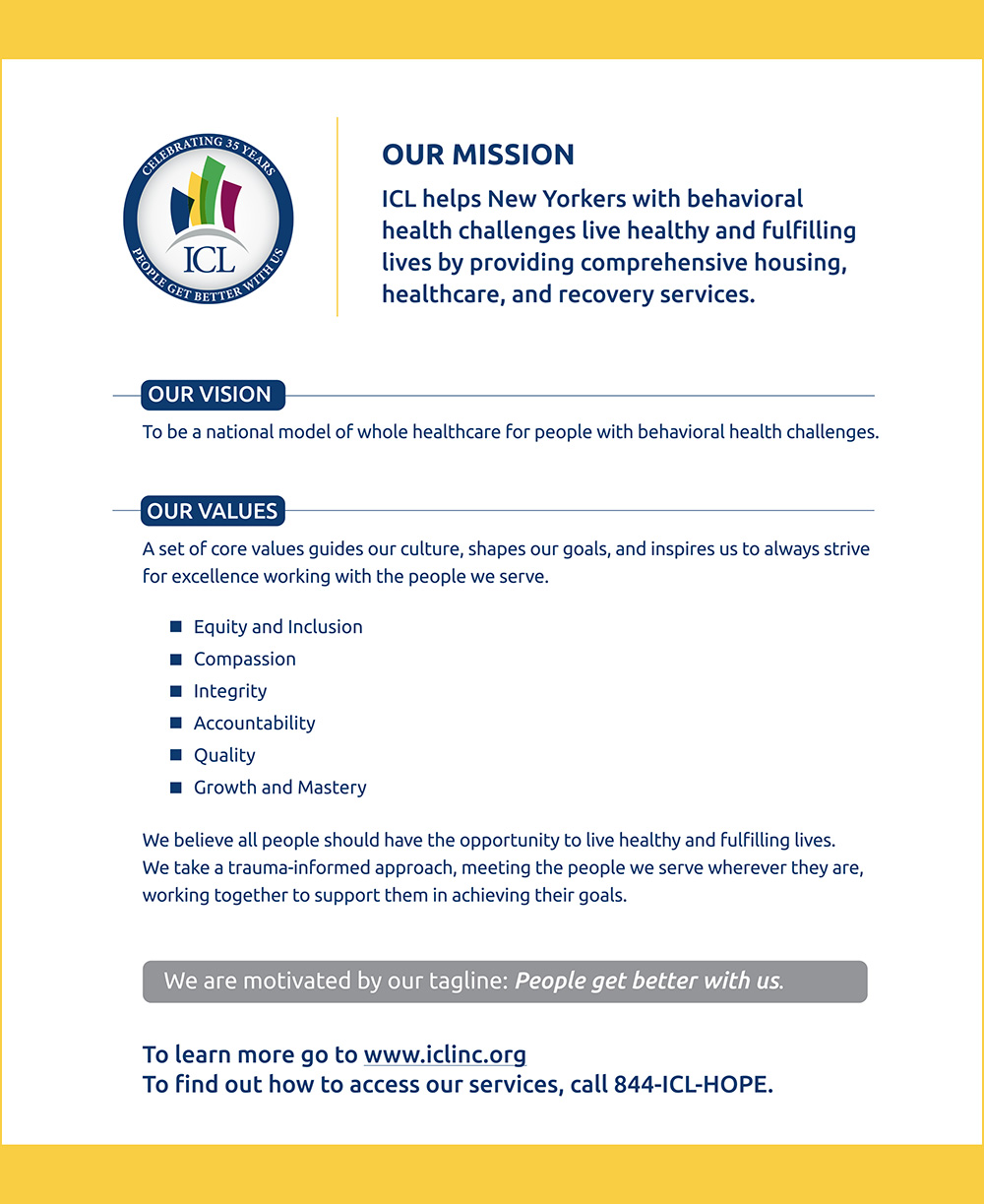Having a family member diagnosed with a mental illness can cause great stress and a deep sense of isolation. Mental health challenges are difficult to open up about because of the fear of judgment, believing that no one will understand. Relationships with family and friends can be difficult to maintain; there’s anxiety around bringing others into your home, not knowing how the individual with these challenges might act around others.

In spite of all the challenges, when learning about a mental health diagnosis in your family, it is critical that you gather as much information as possible about mental health and what is expected. Gaining this knowledge will arm you with the tools to maintain relationships with other family members and friends – and with the person struggling with this diagnosis.
It can be hard to know how to act around someone when you first find out that they are suffering mental health difficulties. People begin to treat the affected person differently – they feel sympathy towards the individual or fear making things worse. Try to be yourself. A professional can also help you deal most effectively with these new circumstances.
Knowledge is indeed power. These two examples provide a glimpse into the journey people embark on when they learn a family member is living with a serious mental health challenge.
Maria – Breaking Through Stigma
When symptoms of schizophrenia first began for Maria, she was living with her husband, Jim, in a community where people did not talk about mental illness. The associated stigma made it very difficult to seek and receive mental health care. Months in, the silence around Maria’s situation and leaving it untreated had taken a great toll on the household and on their relationship. Jim was scared and ashamed; he was also unprepared to deal with the financial burden of his wife’s illness. Left unattended, the challenges festered and grew.
Maria’s granddaughter stepped in – to act as her grandmother’s caregiver. It was only then that Maria received the professional care she so desperately needed. She began to thrive and was more able to manage her mental health. With family treatment, Jim was able to accept Maria’s illness; the couple is now living happily, their granddaughter close by for continued support.
Amelia – Understanding a Child’s Anxiety
Halfway through first grade, Amelia suddenly announced she didn’t want to go to school anymore. Her reluctance led to daily crying and feeling sick, at bedtime, more tears and great worry. Amelia’s mom said she was not aware that children as young as her daughter could develop anxiety, outside of a traumatic experience. For months, Amelia’s caregivers reassured themselves that the child would grow out of this behavior and get better. Instead, Amelia’s symptoms grew worse.
The family finally came to accept that something was truly wrong and sought professional help. As a result of the support they found, Amelia and her family developed the skills needed to help her manage anxiety; today she is thriving, able to go to school and experience the happiness a young child should be able to feel.
Finding the Tools for Meaningful Support
There are many questions a family member will face learning someone they love is diagnosed with a mental illness. How will it affect their life and the life of other family members? Will the loved one be okay? Could they have prevented this? How can they help? What will the future hold? What adjustments need to be made to daily life?
Whether it is your child, parent/caregiver, sibling, or partner, caring for someone struggling with a mental illness can take a toll on you and impact various aspects of your life. It effects everyone in the person’s life so it is very important that everyone is involved in living with this new reality. If they can come together to process this new information, they can best plan for the future of the person diagnosed as well as everyone else involved in their life.
Not only do these kinds of mental health challenges effect family relationships, there are often significant financial burdens. Along with psychological difficulties, the financial burden associated with mental illness may cause ripples within the family dynamic. Families already struggling financially will have greater challenges facing the additional costs of treatment. This should be addressed as a family and guided by professional advice. There are often affordable options for mental health care that can be found.
For couples, mental illness can have negative impact on intimacy and bonding and on communication. The person suffering with the illness might withdraw and isolate themselves or need greater support and reassurance. Partners often feel like they’re walking on eggshells which can increase stress and anxiety. It is best to face these issues honestly and can help to get outside help to navigate the effects on the relationship.
Children of people living with mental illness may be too young to fully grasp the effects of the illness and may well not understand why their caregiver or sibling may not be feeling well or is not acting like themselves. These children can grow up feeling different, lonely, and isolated. Ultimately this may lead to their own mental health challenges and psychological, behavioral, and social problems. Addressing these struggles as a family can be very beneficial for the child’s future.
Staying Strong for the Long-Term Battle
Caring for a loved one with a mental illness can take a lot of energy and time but it may also be the single most important step in helping a person live a happier and more fulfilling life. In fact, the family may be the best-kept secret in the arsenal of healing. When a person is struggling with a mental illness, support from members of the family can make a big difference in their ability to get better, especially by being non-judgmental and actively involved in the healing process such as by attending family therapy.
Family members can encourage loved one to be more independent, to take medications as prescribed and to show up for appointments. At the same time, a family member needs to take care of his or her own needs to reduce feeling overwhelmed or resentful. They are the main support team and whoever they are – caregiver, sibling, child, or partner – they are no doubt stressed and tired and even grieving and deserve attention as well.
As a family, there are many things we can do to sustain hope and the strength to battle the challenges associated with mental illness:
Focus on strengths – Remembering and using our personal strengths creates confidence that we can get through whatever comes our way.
Practice gratitude – Research on gratitude shows that it is more effective than self-control, patience, or forgiveness in creating hope for the future. Families can do a gratitude practice together by going around and each sharing one thing they are thankful for.
Reframe negative thoughts – When feeling afraid or hopeless, try focusing on what’s scaring you and looking at it in a different way. For example, if you’re thinking, “We will never overcome these challenges as a family,” shift to “It might be more demanding to overcome these challenges, so we’ll need to use our strengths as a family to work toward overcoming those difficulties.”
Spend time with hopeful, optimistic people – When we surround ourselves with people who are hopeful and positive, we are more likely to feel that way ourselves.
One of the biggest struggles involves feeling ashamed of the behaviors of the loved one who is struggling with a mental illness. And though mental health came to be more fully appreciated during the pandemic, there is still great stigma in our society around mental illness. As a result, people who need help are reluctant to try to get it. In frightening and uncertain times, it can be difficult to feel hopeful, but having hope for recovery within our family strengthens our ability to get through tough times. And hope can reduce anxiety, trauma, and depression.
Amy E. Schmelz, MS, NCC, is Clinical and Training Support Specialist Child, Family and Young Adult Services Residential Services Division, and Shakima Hill, MPA, is Program Director, Emerson Davis Family Development Center & Supported Housing Nevins Street Apartments, at the Institute for Community Living (ICL).







